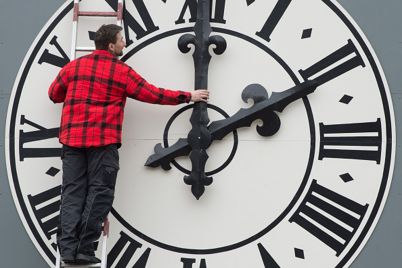The tipping system breeds tension
After waiting tables for three years, I firmly believe everyone should work in customer service at some point – waiting tables if possible.
Providing service for others teaches invaluable life lessons, and you can make good money doing it. I’ve walked away from some shifts having made $30 an hour, others I’ve made less than $5 an hour. It’s a fact you have to accept – the good and bad days even out.
The frustrating part is that often tables that require the most work from their server pay off the least. The customers who tip well are usually courteous and thankful. The customers who tip poorly often barely acknowledge their server as a human being.
It makes no sense – the harder you work, the less money you get.
Some argue that servers need the motivation of tips to provide good service, but plenty of other businesses find employees who provide excellent customer service while being payed an hourly rate. By paying servers a fair wage, we don’t have to ban tipping. It could still be something to strive for.
Expected tipping creates tension between customers and servers. A less than friendly customer may not be treated well, because it’s assumed they won’t tip decently. A friendly server often appears fake.
Working at a restaurant in Ann Arbor, a college town that hosts hundreds of foreign students and faculty, I witnessed another toxic side to tipping: It perpetuates stereotypes and breeds racism.
Because tipping customs differ around the world, those not familiar with American standards might not realize that servers are paid next to nothing hourly.
Raising the minimum wage for servers, or including a mandatory service fee, can put an end to this tension between servers and customers.
What does your wallet say?
Excellence deserves recognition.
It’s a value that has been drilled into our heads as Americans, be it as direct advice or simply in our daily observance of the cutthroat society around us.
In a culture saturated with mediocre efforts disguised as five-star service, sometimes it’s hard to separate the lackluster from the exceptional, and even harder to know how to reward excellence when you do see it.
As consumers, we exist in a very rigid system – marketplace outcomes largely predetermined by super corporations pulling the puppets strings of our wallets.
Not often does it feel like our wallets are doing the voting, and many industries benefit from the contents regardless of our intention or support.
Those in the service industry, however, are tasked with providing service to customers of all backgrounds, all needs and all attitudes. Their work is then immediately judged and scored in the form of a monetary tip.
In no other industry are one’s efforts so directly tied to their rewards. Servers are asked to cater hand and foot to their guests, fulfilling requests often well outside of reasonable expectation. And they are asked to do so with a glowing smile and cheerful attitude.
It’s a grueling job.
It’s a grueling job that should be rewarded for its excellence.
Removing the tipping system in our state would minimalize the efforts of every service industry worker, and it would take away our power as consumers to quite literally put our money where our mouths are.
In a culture slowly stripping away our power as citizens, we ought to fight for the chance to support each other.



